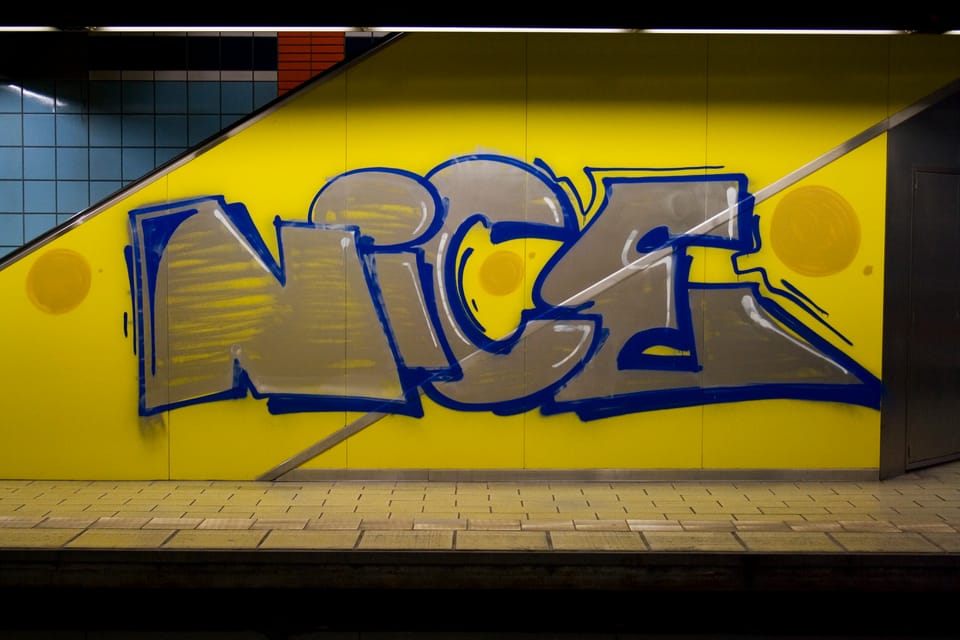How to Be True to Who You Are: The Thin Line Between Niceness and Fairness

Are You Being NICE or Are You Being FAIR?
“Nothing Inside me Cares Enough (to tell you the truth).”
Almost 20 years ago, I was part of a program led by a strength training coach. His acronym for the word NICE (above) was demonstrative of the kind of person he was. So if you can’t be nice, or choose not to be nice, what’s the alternative?
If your default is to be nice to everyone, you’re probably not being true to who you are.
Don’t get me wrong. I don’t mean that you should be uncivil, rude, or inconsiderate. You don’t have to go to the extreme opposite of what being NICE means to be your best self.
Being NICE is a form of social etiquette; a politeness to avoid dealing with the truth — a thinness of trust in others and a kind of disrespect, in the sense of not caring enough to speak freely.
The Oxford Dictionary defines FAIR as,
“providing an equal chance of success to all; not unduly favourable or adverse to anyone,” and “With justice or fairness; honestly, impartially; in accordance with what is right, honourable, or legitimate.”
Fairness is about fostering balance and equity, including cultivating what is morally good.
Acting fairly requires vulnerability, respect, and a willingness to work through challenging issues with transparency and honesty.
A Lesson in Workplace Dynamics
“Read the room,” my manager said, in what felt and sounded like a dismissive, condemnatory tone.
Having only been in the role a few short weeks, I was taken aback and unsure how to effectively and safely respond. What concerned me was why my manager would be so unhelpful and presumptuous. Certainly, the greater one’s emotional intelligence, the more adept one is at reading the so-called room. However, this became an early warning sign of organizational and management issues.
Not wanting to be perceived as making another social blunder that day, I decided it would be best to ask what they meant exactly.
A reason was given, but it felt like this could’ve been explained in the first place, which would have alleviated my discomfort and discord.
Getting clarity about how I hadn’t been respecting my authenticity.
Recently, I had a mind-shifting coaching session with my former coach.
I had been struggling for months to get clarity about what I want to do next, which resulted in feeling unhappy, unfulfilled, and uncertain. This was the tail-end experience of a 5-month journey of extreme overwhelm. My coach, Dax Moy, helped me realize that I had allowed myself to be silenced in numerous ways in a previous job. This resulted in me having to be nice — in the sense of having to fit in so that I wouldn’t rock the boat any further.
If you try to accommodate everyone else’s needs, yours won’t be met.
It turns out that I wasn’t respecting my truest self, and for that, I was suffering.
Even though I tried to stand up for what, I thought, was FAIR in a few challenging situations at that workplace — in accordance with what was right and legitimate — the impartiality of my actions was compromised by other human factors.
It’s easier to assess situations like these in retrospect because the problems often build slowly or are subtle — until they can no longer be ignored.
Fairness in Difficult Situations: A Practice of Equity and Integrity
Fairness is required in difficult situations and conversations, especially when people are dealing with challenging emotions like anger, guilt, threat, or fear.
Acting with impartiality, respect, equity, and integrity are challenging behaviours to master — even more so in heated situations.
Delving deeper into the layers of meaning and outcomes of being fair, I've come up with an acronym for FAIR:
⇒ Free. Authentic. Integrity. Real.
Contrast this acronym for FAIR with one for NICE, above, and notice the contrast.
When you are treated fairly, you feel valued, appreciated, seen, understood, and respected — even in difficult conversations and situations.
Being treated fairly speaks to feeling free, authentic, being treated with integrity, and valued as a whole person. However, when someone treats you unfairly, they are trying to make you smaller, less important, or silencing you — to make themselves look better, more important, right, or superior.
The practice of fairness, and the capacity to act respectfully towards others, comes from a self-confidence that is rooted in the value of human dignity.
Fairness in the workplace involves understanding the importance of time, patience, and kindness, especially for new employees navigating the complexities of organizational culture.
Certainly, this is a two-way street, but expecting someone to know how to read the room is inconsiderate at best, rude and disrespectful at worst. As challenging as it may be, when individual uniqueness is embraced, this act of inclusion supports real diversity in the workplace.
Are fairness and human dignity values in your workplace, or merely nice-to-have?





Member discussion